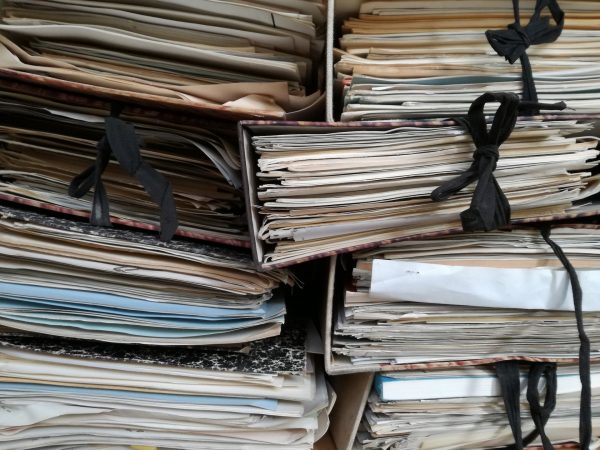Why Unpublished Work Still Matters
By Amy Gordon
When I decided to pursue my MFA at Colorado State University, I jumped on the opportunity to intern with the Center for Literary Publishing and work on Colorado Review. Selfishly, I wanted to learn more about what went on behind the scenes at a literary journal. What did editors look for in essays, aside from good writing and an interesting story? How were essays chosen from among the hundreds of submissions? I also wanted to be part of a highly respected journal that gave voice to new writers and exposed readers to important and impactful stories.
What I did not anticipate when I began the internship was how difficult the work could be on an emotional level.
Like almost all literary journals, Colorado Review sends polite template-based emails to writers explaining that we are not accepting their submissions. We rarely say anything more. I spend three hours every week reading creative nonfiction submissions (the genre in which I write), getting glimpses into people’s private lives. Writers willingly submit their work, but I still sometimes feel like an intruder, an eavesdropper, someone hiding in a closet watching an intimate scene that I have no right to observe. I occasionally wonder why a stranger has entrusted me with their secrets. I, too, write about my secrets (some of them, at least), but, still, it feels awkward to sit in front of a computer and click “decline” after reading about sexual assault, physical abuse, the death of a parent or child, illness, or any other of the myriad experiences that grace the pages of an essay. It’s as if I am declining not just the writer’s essay but their story.
More frequently than I would have guessed, when I click on “send” to notify an author that we are not accepting their submission, I wish I could write a personal letter. Sometimes I want to tell them that they have a gorgeous writing style or that I laughed at their references to eighties pop culture. Often, though, I want to tell them how much their writing affected me. Here is a sample of one of the letters I imagined writing:
Dear writer,
Your essay impacted me deeply. The assault you endured is horrific and almost inconceivable. But it’s your bravery in writing about this experience that will stick with me. I cannot imagine how hard it was to sit down and put pen to paper. Your willingness to share this story with others is even more striking. I wish that Colorado Review were the right home for this piece, and I hope that someday your writing does find a home. Please know that your essay is important and powerful and that I feel honored to have read it.
I struggled during my first several weeks at Colorado Review to separate the story from the essay, to think of the essay as a piece of art that did or did not fit well in the journal. Not surprisingly—both because lots of bad things happen in the world and because nonfiction writers often tackle difficult topics—I read a lot of essays about experiences that many people discuss only with their therapists, if at all. Whether writing as a form of catharsis or because of a desire to relate to others or hope that through writing we can help build more of a shared humanity, authors trusted me to read their work and judge it. I cringe now as I type the word “judge,” but that’s what I am doing. What I slowly realized is that a story can be heartrending and impactful and relatable and beautiful and sad and touching and universal and still not fit in Colorado Review.
Creative nonfiction is often an intimate endeavor, an attempt to connect with others and discover the universal in the personal and particular. Yet the literary publishing world is often detached, impersonal, opaque. It’s hard to sit in the space between the two.
Now that I have been reading submissions for several months, I still feel emotional when I read essays, my shoulders tense during difficult passages, and I breathe deeply as my eyes move down the page. I always remind myself to take a few moments to appreciate the author’s vulnerability and let myself feel whatever emotions the essay evokes. Even when I know a piece might not be the right fit for the magazine, I hope that I continue to approach submissions this way.

Amy Gordon is a first-year MFA candidate in creative nonfiction at Colorado State University where she is an associate editor at Colorado Review. She was the recipient of the 2022-2023 Tremblay-Crow-Kern Creative Writing Fellowship.